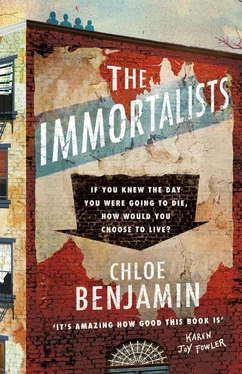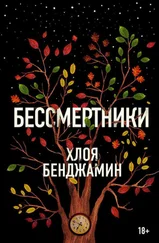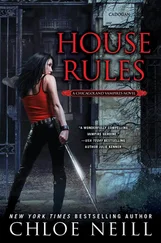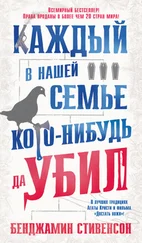Years later, a different therapist asked her exactly what she was afraid of. Varya was initially stumped, not because she didn’t know what she was afraid of but because it was harder to think of what she wasn’t.
‘So give me some examples,’ said the therapist, and that night Varya made a list.
Cancer. Climate change. Being the victim of a car crash. Being the cause of a car cash. (There was a period when the thought of killing a bicyclist while making a right turn caused Varya to follow any bicyclist for blocks, checking again and again to make sure she hadn’t.) Gunmen. Plane crashes – sudden doom! People wearing Band-Aids. AIDS – really, all types of viruses and bacteria and disease. Infecting someone else. Dirty surfaces, soiled linens, bodily secretions. Drugstores and pharmacies. Ticks and bedbugs and lice. Chemicals. The homeless. Crowds. Uncertainty and risk and open-ended endings. Responsibility and guilt. She is even afraid of her own mind. She is afraid of its power, of what it does to her.
At her next appointment, Varya read the list aloud. When she finished, the therapist leaned back in her chair.
‘Okay,’ she said. ‘But what are you really afraid of?’
Varya laughed at the purity of the question. It was loss, of course. Loss of life; loss of the people she loved.
‘But you’ve already been through that,’ the therapist said. ‘You lost your father and all your siblings – more familial loss than some people ever endure by middle age. And you’re still standing. Sitting,’ she added, smiling at the couch.
Yes, Varya was still sitting, but it wasn’t that simple. She had lost parts of herself as she lost her siblings. It was like watching the power incrementally turning off throughout a neighborhood: certain parts of her went dark, then others. Certain modes of bravery – emotional bravery – and desire. The cost of loneliness is high, she knows, but the cost of loss is higher.
There was a time before she understood this. She was twenty-seven years old and taking a graduate course in the physics department. The course was taught by a visiting professor from Edinburgh who had studied with a researcher named Peter Higgs.
‘Plenty of people don’t believe Dr. Higgs,’ he told Varya. ‘But they’re wrong.’
They sat in an Italian restaurant in Midtown. The professor said that Dr. Higgs had postulated the existence of something called the Higgs boson, which imbues particles with mass. He said it could be the key to our understanding of the universe, that it was a linchpin of modern physics even though no one had ever seen it. He said it pointed to a universe ruled by symmetry but in which the most exciting developments – like human beings – are aberrations, products of the brief moments when symmetry fails.
Some of Varya’s friends were shocked by their own missed periods, but Varya knew instantly: she woke up one morning no longer herself. Three days before, she had slept with the professor on a twin bed in his campus apartment. When he nestled his face between her legs and moved his tongue, she orgasmed for the first time. Soon after, he became civil and distant, and she did not hear from him again. Now she imagined the new cells in her body and thought: You will undo me. You’ll ground me forever. You will make the world so vivid, so real, that I won’t be able to forget my pain for an instant. She was afraid of aberration, which could not be controlled; she preferred the safe consistency of symmetry. When she made an appointment to have her uterus emptied at the Bleecker Street Planned Parenthood, she saw the aberration disappear as if between two elevator doors, so cleanly it might never have been there.
Other people speak of the ecstasy to be found in sex and the more complicated joy of parenthood, but for Varya, there is no greater pleasure than relief – the relief of realizing that what she fears does not exist. Even so, it’s temporary: a blustery, wind-swept pleasure, hysterical as laughter – What was I thinking? – followed by the slow erosion of that certainty, the creeping in of doubt, which requires another check in the rearview mirror, another shower, another doorknob cleaned.
Varya has had enough therapy to know that she’s telling herself stories. She knows her faith – that rituals have power, that thoughts can change outcomes or ward off misfortune – is a magic trick: fiction, perhaps, but necessary for survival. And yet, and yet: Is it a story if you believe it? Her deeper secret, the reason she doesn’t think she’ll ever be rid of the disorder, is that on some days she doesn’t think it’s a disorder. On some days, she doesn’t think it’s absurd to believe that a thought can make something come true.
In May of 2007, six months after Daniel’s death, Mira called Varya in hysterics.
‘They’ve cleared Eddie O’Donoghue,’ she said: an internal review had found no evidence of wrongdoing.
Varya did not cry. She felt fury enter her body and settle there, like a child. She no longer believed that Daniel died of a bullet meant for the pelvis but which entered his thigh, rupturing the femoral artery, so that all his blood was lost in less than ten minutes. His death did not point to the failure of the body. It pointed to the power of the human mind, an entirely different adversary – to the fact that thoughts have wings.
32.
On Friday morning, while driving to work, Varya pulls to the side of the road, wrenches the car into park, and drops her head between her knees. She is thinking of Luke. For the past two days, he has met her at the lab at seven thirty and followed her into the vivarium. There he’s been useful – helping her weigh pellets for feedings, transferring heavy cages to the storage room for cleaning – and the animals have taken to him. On Wednesday he developed a game with one of their older males, Gus, a beautiful rhesus with a full orange coat and an ego to match. Gus came to the front of his cage and presented his belly to ask for a scratch. Then he either jumped back in an attempt to startle Luke, who laughed and played along, or sat there for as long as Luke scratched his exposed, salmon-colored stomach, smacking his lips in affection.
When Varya expressed surprise at his skill with the monkeys and his desire to help, Luke explained that he grew up on a farm, that physical labor and working with animals are familiar to him, and that this is what his editor at the Chronicle wanted, anyway: to get a sense of daily life at the Drake, so that the researchers come alive as real people, and the monkeys as individuals, too. On Thursday, while eating lunch in the office – Varya with her Tupperware of broccoli and black beans, Luke with a chicken wrap from the atrium – he asked her about this, whether she thought of the monkeys as individuals, and whether it troubled her to see them in cages. If he had done so on Monday, she would have been wary, but the days since have passed so easily, without crisis or judgment, that by Thursday she was relaxed enough to answer honestly.
Before she came to the Drake, she had never been around organisms of such size and flesh. The monkeys’ bodies were meaty and impossible to ignore: they smelled and screeched, they were covered in hair, they suffered from diabetes and endometriosis. Their nipples were pink as bubblegum and distended, their faces startlingly emotive. It was impossible to look into their eyes and not see – or think you saw – just what they were thinking. They were not passive subjects to be acted upon but opinionated participants. She was conscious of not anthropomorphizing them, and yet, in those early years, she was struck by the familiarity of their faces and especially by their eyes. When they gathered together and stared at her with those bottomless eyes they looked to her like humans in monkey suits, peering through cutouts in masks.
Читать дальше








![Мелани Бенджамин - Госпожа отеля «Ритц» [litres]](/books/384861/melani-bendzhamin-gospozha-otelya-ritc-litres-thumb.webp)



